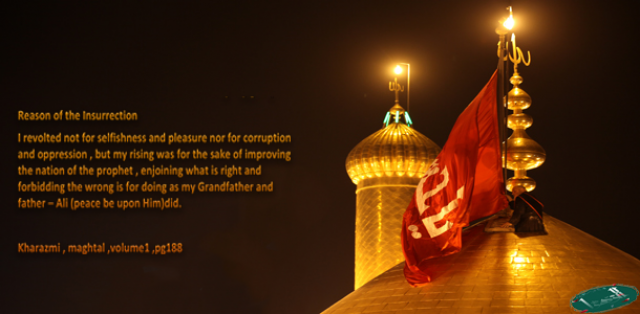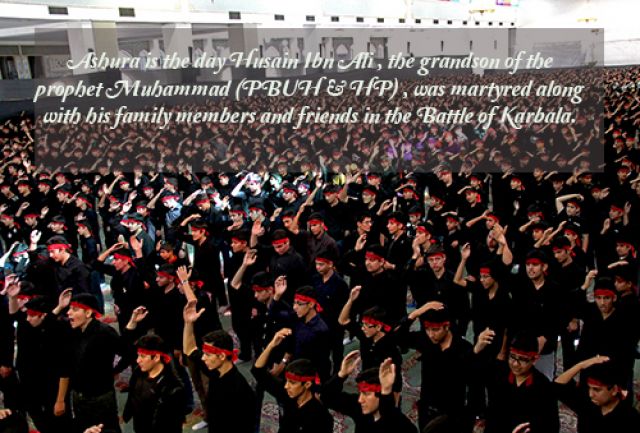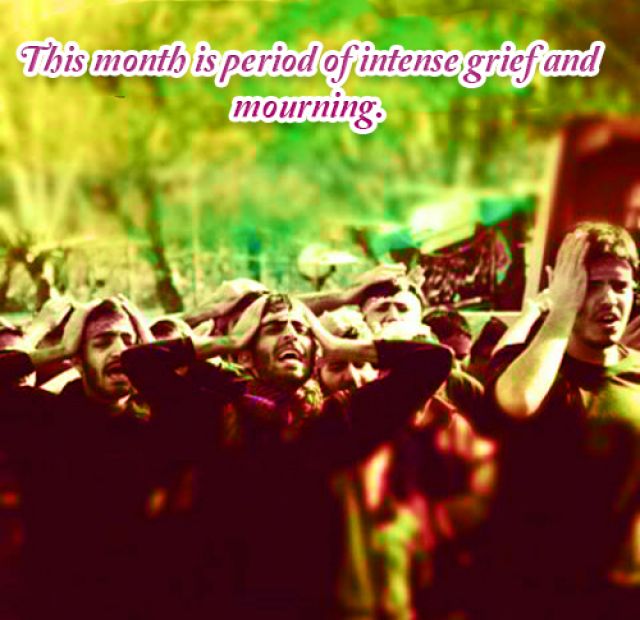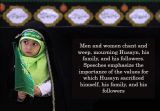
 The Revolution’s Causes The motives for revolution were numerous. Some were direct grievances of the general people while others were ideological. The following were the most apparent: 1. There were many defects and drawbacks but the most urgent one was the attempt to distort Islamic concepts and ideals. This aspect was of extreme importance and preoccupied the minds of responsible Muslims at the time. The fabrication of Hadith was all too common, which had a poisonous effect on the lives of Muslims. This, was giving the Umayyads for a while a free hand to carry out their inhuman deeds and policies. The mask of religion which they used to hide their un-Islamic conduct was extremely dangerous. In the long run, this could have changed Islamic concepts of ruling and inverted social ideals. Thus stripping off this mask and exposing the true Umayad’s picture was of utmost necessity. 2. The State’s structure was built on an un-Islamic basis. Quraish was born to rule, Arabs were second class citizens, and non-Arabs constituted the base of the society’s pyramid. That was the general social picture of, the Muslim world under the Umayyads dynasty. Freedom of thought and expression were denied, When one dared to express an opinion contrary to that of the Umayyad’s, prison became his home, his property was robbed, and oven his life was at stake. 3. The Umayyads considered the Muslim world to be their own property. The aims (Zakat) and other Islamic dues were collected, but no-one knows or can question where that money went. Large gifts and donations were given to few cruel governors and tribal chiefs in order to secure their allegiance. Large sums of money were wastefully spent on racing, gambling, wine-making, and buying slave women to entertain high-class people in power. Hence, the majority of Muslims were left near starvation level while the ruling group all enjoyed the social and material privileges. 4. The Muslims had apparently got used to the un-Islamic rule of the Umayyads as time passed by. Their resistance slackened and some people began adjusting themselves to the new conditions. Hence, the revolutionary spirit of Islam began to disappear gradually from Muslims’ lives and thoughts. Therefore, a new stimulant to their souls was necessary to activate their lives and try to restore, Islamic conduct to the society.
The Revolution’s Causes The motives for revolution were numerous. Some were direct grievances of the general people while others were ideological. The following were the most apparent: 1. There were many defects and drawbacks but the most urgent one was the attempt to distort Islamic concepts and ideals. This aspect was of extreme importance and preoccupied the minds of responsible Muslims at the time. The fabrication of Hadith was all too common, which had a poisonous effect on the lives of Muslims. This, was giving the Umayyads for a while a free hand to carry out their inhuman deeds and policies. The mask of religion which they used to hide their un-Islamic conduct was extremely dangerous. In the long run, this could have changed Islamic concepts of ruling and inverted social ideals. Thus stripping off this mask and exposing the true Umayad’s picture was of utmost necessity. 2. The State’s structure was built on an un-Islamic basis. Quraish was born to rule, Arabs were second class citizens, and non-Arabs constituted the base of the society’s pyramid. That was the general social picture of, the Muslim world under the Umayyads dynasty. Freedom of thought and expression were denied, When one dared to express an opinion contrary to that of the Umayyad’s, prison became his home, his property was robbed, and oven his life was at stake. 3. The Umayyads considered the Muslim world to be their own property. The aims (Zakat) and other Islamic dues were collected, but no-one knows or can question where that money went. Large gifts and donations were given to few cruel governors and tribal chiefs in order to secure their allegiance. Large sums of money were wastefully spent on racing, gambling, wine-making, and buying slave women to entertain high-class people in power. Hence, the majority of Muslims were left near starvation level while the ruling group all enjoyed the social and material privileges. 4. The Muslims had apparently got used to the un-Islamic rule of the Umayyads as time passed by. Their resistance slackened and some people began adjusting themselves to the new conditions. Hence, the revolutionary spirit of Islam began to disappear gradually from Muslims’ lives and thoughts. Therefore, a new stimulant to their souls was necessary to activate their lives and try to restore, Islamic conduct to the society.
 نظر دهید »
نظر دهید » 
 As the enemies had the body of Imam Hussain (as) surrounded, each took their turn stabbing his pure defenseless body, laid out on the ground; thus, while viciousness, revengefulness, and feral behavior swept through the battle field, in the camps of Imam Hussain (as) the spirit of remembrance in God, the human quality of tenderness, and intense emotions prevailed. All women and children—no one but women and children were left in the camps, with the exception of the only surviving male Ali Ibn Hussain (as) who was ill—were worried about Hussain Ibn Ali (as) and what would transpire next. They came out of their tents, and proceeded to the area where they believed Hussain Ibn Ali’s (as) body was seized; it has been narrated that the women departed from the camp. You have probably seen or heard how Arab women weep and mourn: it is still common among Arab women to mourn painfully upon the death of their loved ones; they beat their own faces, and pull at their hair; they mourn in such an intense manner. Well, these women had lost a loved one, a man like Hussain Ibn Ali (as). Hazrat Zeinab was heading the women towards the sight of his martyrdom. When she arrived, she spotted the body of her beloved brother on the blistering grounds of Karbala. Instead of revealing some sort of reaction, or grievance, she went to the corpse of her beloved Hussain (as), and called on her grandfather (pbuh). She said, “O’ the Messenger of God, peace be upon you! Take a look at your Hussain who is covered in blood, with his body hacked up.” O’ my dear grandfather! O’ Great Prophet, look towards the hot desert of Karbala. This is your Hussain who is now covered in blood and dust. Then, as it has been narrated, Zeinab (as) reached her hands beneath the body of Hussain Ibn Ali (as) and called out, “O’ God! Please accept this sacrifice from the progeny of Muhammad (saw)!” Ayatollah Khamenei, 9/27/1985
As the enemies had the body of Imam Hussain (as) surrounded, each took their turn stabbing his pure defenseless body, laid out on the ground; thus, while viciousness, revengefulness, and feral behavior swept through the battle field, in the camps of Imam Hussain (as) the spirit of remembrance in God, the human quality of tenderness, and intense emotions prevailed. All women and children—no one but women and children were left in the camps, with the exception of the only surviving male Ali Ibn Hussain (as) who was ill—were worried about Hussain Ibn Ali (as) and what would transpire next. They came out of their tents, and proceeded to the area where they believed Hussain Ibn Ali’s (as) body was seized; it has been narrated that the women departed from the camp. You have probably seen or heard how Arab women weep and mourn: it is still common among Arab women to mourn painfully upon the death of their loved ones; they beat their own faces, and pull at their hair; they mourn in such an intense manner. Well, these women had lost a loved one, a man like Hussain Ibn Ali (as). Hazrat Zeinab was heading the women towards the sight of his martyrdom. When she arrived, she spotted the body of her beloved brother on the blistering grounds of Karbala. Instead of revealing some sort of reaction, or grievance, she went to the corpse of her beloved Hussain (as), and called on her grandfather (pbuh). She said, “O’ the Messenger of God, peace be upon you! Take a look at your Hussain who is covered in blood, with his body hacked up.” O’ my dear grandfather! O’ Great Prophet, look towards the hot desert of Karbala. This is your Hussain who is now covered in blood and dust. Then, as it has been narrated, Zeinab (as) reached her hands beneath the body of Hussain Ibn Ali (as) and called out, “O’ God! Please accept this sacrifice from the progeny of Muhammad (saw)!” Ayatollah Khamenei, 9/27/1985
 2 نظر »
2 نظر » 
Of course this is easier said than done. What Imam Hussein (a.s.) did was an extraordinary feat. That is to say, the dimensions of his action are far more than what we estimate. We usually ignore aspects and details. Once I spoke about Imam Hussein’s (a.s.) patience. His patience was not limited to enduring thirst or seeing his companions being killed. These things are relatively easy to tolerate. The kind of patience that is difficult to practice is to listen to influential, aware and respectable people who keep creating doubts and telling you that what you are doing is dangerous and wrong. Who did those things? People like Abdullah Ja’far, Abdullah Zubair and Abdullah Abbas. These prominent figures of that time were constantly telling Imam Hussein (a.s.) not to do what he was doing. If it were somebody else, somebody who did not have that determination and stable character, he would have thought, “Well, I did my duty. These people are talking like this and the world is acting like that, so I should just say what I am supposed to say and do nothing else.” A person who decides to stand up against such statements, such temptations, such doubts and such efforts to bend sharia and is not dissuaded from continuing his path - such a person is the one who can give rise to such a great transformation. In this regard our magnanimous Imam (r.a.) was similar to the Lord of the Martyrs. I explained this in another meeting and I do not want to go into the details now. This was how Imam Hussein (a.s.) acted as a guardian.
 4 نظر »
4 نظر » 
